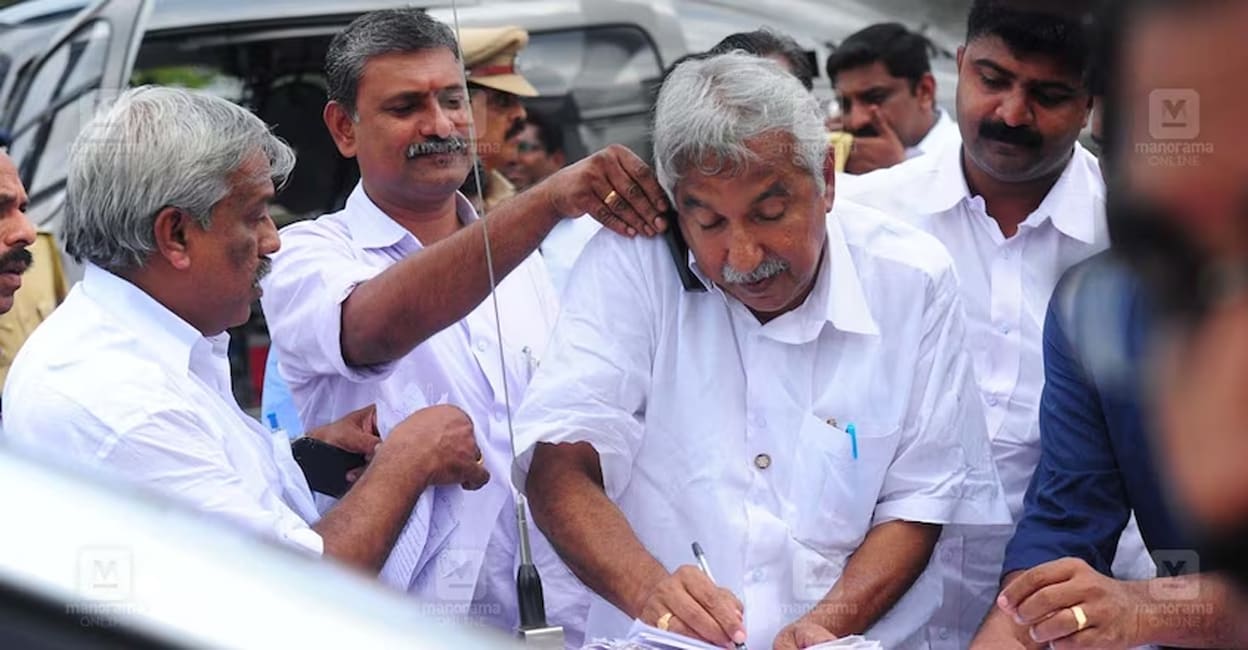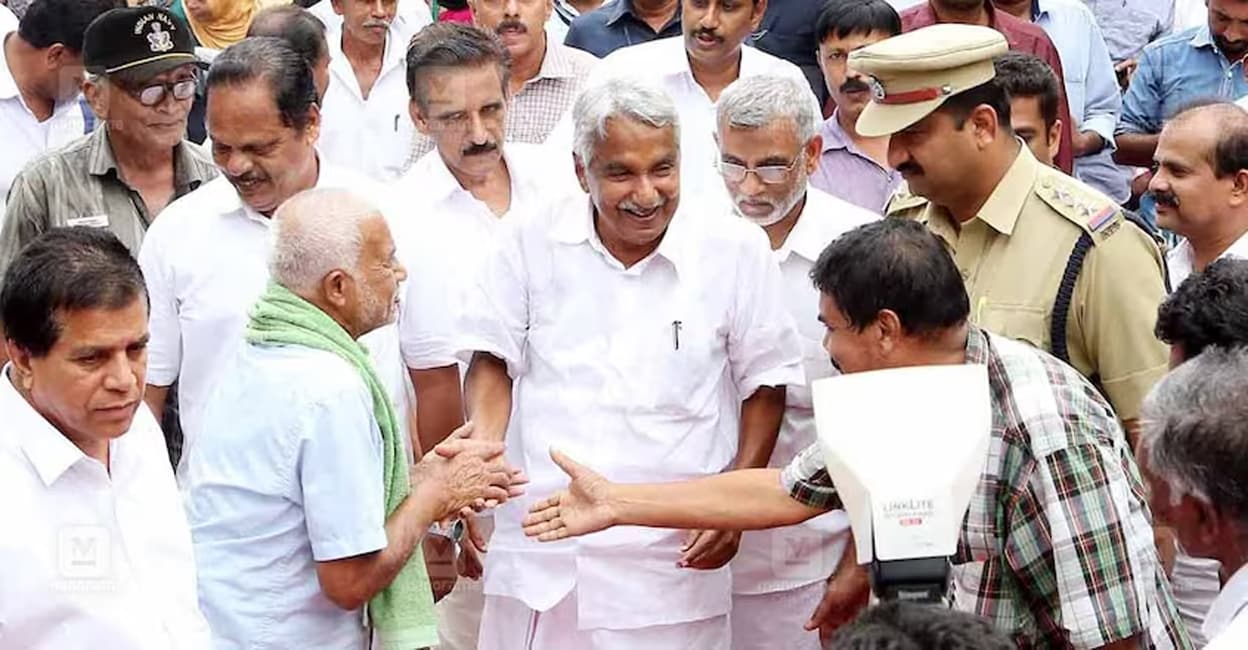Column | A legend in his own lifetime

Mail This Article
Oommen Chandy (OC) was already a legend among the youth when I heard his name together with those of A K Antony and Vayalar Ravi. But since KSU was not in existence in the University College, Thiruvananthapuram, I did not come under their spell and my student politics ended when my principal Dr N S Warrier persuaded my father to make me withdraw from the contest for the college union chairman to pursue an IFS career.
O C had, however, remained a legend all his life because of his charisma and an exceptional career as a political leader till he breathed his last. Everything was legendary about him, his popularity, steadfastness as a Gandhian, his devotion to the people, and his determination to transform Kerala into a developed and prosperous state. His opponents tried to tarnish him, but his Teflon image remained intact. To borrow Oliver Goldsmith’s words, "with meek and unaffected grace, his looks adorned the venerable place; truth from his lips prevailed with double sway, and fools who came to scoff, remained to pray."
Accusations against him of machinations and alleged attractions to a femme fatale were rejected by the people's court long before he was legally acquitted. The media could not sustain any campaign against him for more than a few days because of his impeccable image. We know of film actors becoming politicians by cultivating an image of the saviour of the people, but O C became a guardian angel of the poor and dominated Kerala politics, whether in office or in the opposition.
In the long years that I spent abroad, I had no chance to meet him, except when he came to Vienna as Chief Minister and came to meet me in my Embassy alone. That was the first time I met him and he was every inch the man I had imagined, courteous, gentle, kind and a missionary for Kerala's growth. He was still Chief Minister when I returned to Kerala and I met him together with Chancellor Ashok Chauhan of the Amity University, who wanted to set up a private university in Kerala with my assistance. O C was drawn to the proposal, but he explained that Kerala was not yet ready to have private universities because of the ideological objection by certain political parties, but promised that at the earliest opportunity he would get back to us. But my presentation of the merits of private universities remained in his mind as an idea whose time had come.
In 2011, when he became Chief Minister again, he decided to liberalise and modernise higher education, he invited me to be the Vice-Chairman of the Kerala State Higher Education Council, considered a preserve of former Vice Chancellors of Kerala. I hesitated as I really had no experience of the higher education system of Kerala, except as a student and as a lecturer at the Mar Ivanios College. He disregarded my hesitation and stressed that someone with global experience and an open mind was needed to bring about a mini revolution in higher education.
My colleagues in the council and I set about preparing a road map for change. We suggested that we should deal with infrastructure, teachers' training, use of technology, autonomy, research and internationalisation. O C embraced our plan, but took no credit for it and helped us to move forward with our proposals. But machinations began to undermine our work, first by questioning my credentials as an educationist and later by questioning the 16 reports we had submitted to the government, particularly having private universities and foreign universities. O C stood steadfast, but he adopted persuasion rather than pressure, particularly on his own coalition partners. The only success came in the form of the UGC approving 20 colleges, the best in Kerala as autonomous colleges.
As for the other proposals,an agitation began which culminated on the day the Chief minister was to inaugurate a Global Education Meet, when a group of students tried to prevent the meet by trying to prevent me from entering the venue. I was not hurt, but picture of me lying on the road for reforming education has become a blot on the conscience of Kerala.

It must go to the credit of O C that he took the entire responsibility for the incident when he released my book, 'Education of an Ambassador'. He said that he tried to save the meet by agreeing that he and the Minister of Education would keep away from the Meet, but without realising that the Opposition would still disrupt the meet by attacking me. The whole process of reform was halted for more than fifteen years after which the present government came round to the view that the reform programme of O C should be implemented. A whole generation of students was deprived of a reformed education system. The fleeing of Kerala students today is the consequence of the state rejecting O C's vision.
Working for such a visionary was a pleasure because he gave the general directives and left it for experts to work it out. The brilliant academics who worked with me shaped the plan, keeping in mind that all the concerns of Kerala society should be reflected in the reform. The National Education Policy 2020 has incorporated many of our suggestions, but Kerala did not accept many of the provisions till recently, again losing precious time.
I have worked with several top diplomats of the country who are the embodiments of charm and grace, but many of them keep their good manners for foreigners and treat their own colleagues roughly. I often wondered why diplomacy did not begin at home. Here again, O C was a role model for administrators. Meeting him alone was impossible as his time management was invented by himself.
Everyone in his office had equal rights, but not exclusive rights. He literally lent his ears to everyone by turns and got back to interrupted conversations seamlessly. I went to his room occasionally to express my frustration over something or the other, but seeing him dealing with endless problems, I came away to resort to my own devices. The only occasions when I was alone with him were in my office in Vienna and at Raj Bhavan when two of us arrived half an hour before a foreign VIP.

His respect for coalition dharma was absolute. Once a department was allocated to a particular party, he rarely overruled it and tried to persuade it rather than push it in one direction or another. This meant delays and even changes in his larger plan for the state. But since things were transparent, democratic and secular, he triumphed in the end.
As I said to an audience in Kottayam on July 15, 2023, hardly five days before his demise, when the Archbishop Kunnasseril Award was bestowed on O C by Governor Ananda Bose, the award was like the embellishment of a pot of gold or providing an orchestra for the music of the cuckoo. He was far too embellished for us to add to or detract from his unique place in history.


